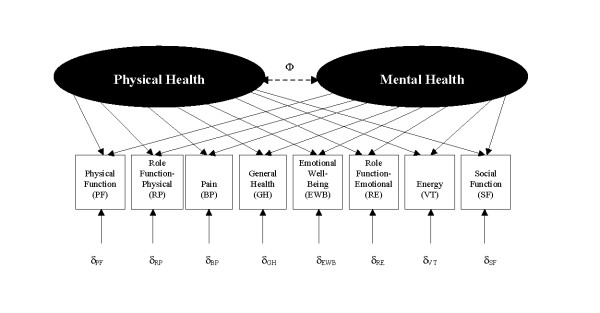Figure 1.
Conceptual model for the SF-36 health survey. Orthogonal (uncorrelated) model assumes the correlation between physical and mental health constructs is fixed at 0 (Φ = 0). Oblique (correlated) model allows correlation between the physical and mental health constructs. δ denotes error terms (uniqueness terms) associated with each scale. Directional associations exist between the physical and mental health and the 8 scales (as indicated by the arrows); however, the associations vary from large (e.g. physical functioning on physical health) to close to zero (e.g., emotional well-being on physical health).

